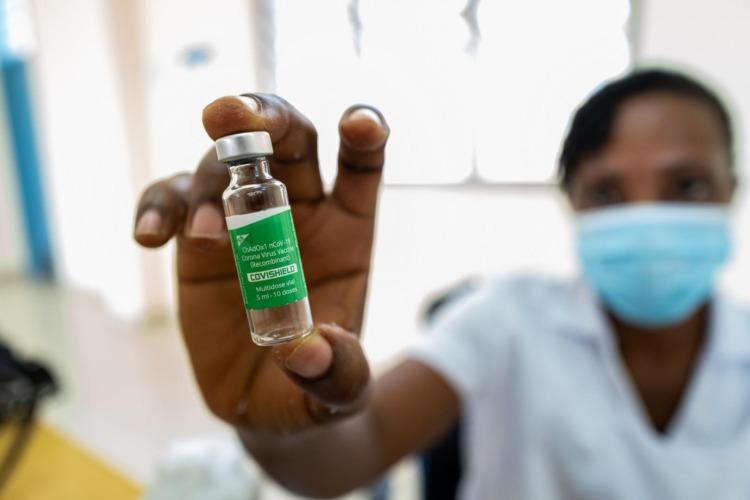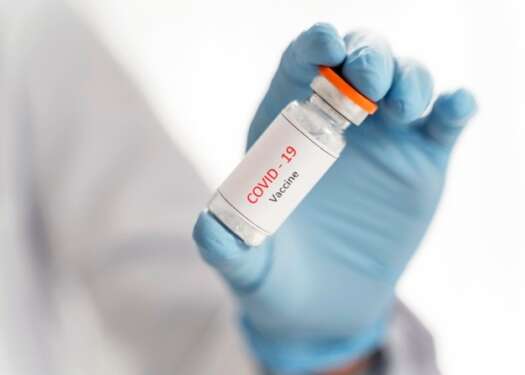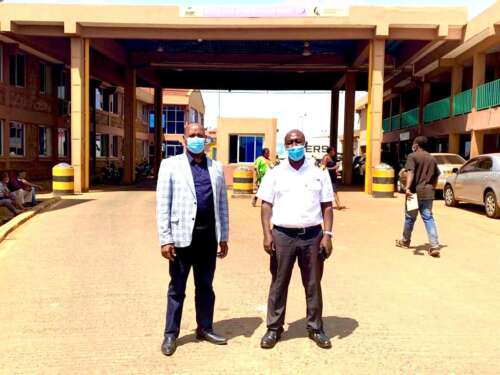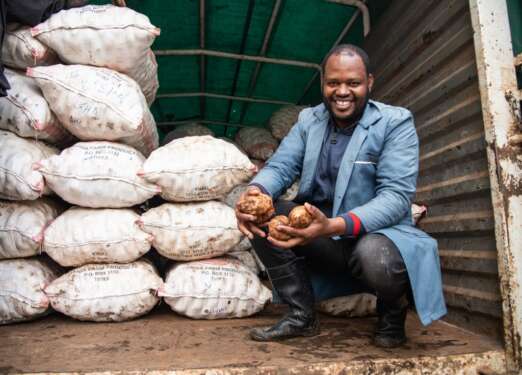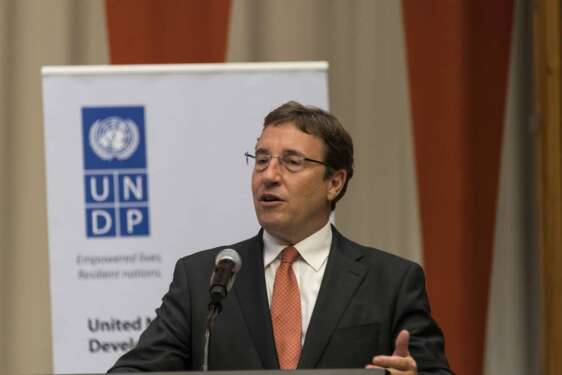- Africa’s $824Bn debt, resource-backed opaque loans slowing growth — AfDB
- LB Investment brings $1.2 trillion portfolio display to AIM Congress spotlight
- AmCham Summit kicks off, setting course for robust future of US-East Africa trade ties
- Why the UN is raising the red flag on the UK-Rwanda asylum treaty
- Portugal’s Galp Energia projects 10 billion barrels in Namibia’s new oil find
- Wärtsilä Energy offers tips on how Africa can navigate energy transition and grid reliability
- Powering Africa: Africa’s Path to Universal Electricity Access
- Global investment trends at AIM Congress 2024: a spotlight on the keynote speakers
Browsing: Global pandemic
Is this achievable?
If the Pharmaceutical Manufacturing Plan for Africa that was recently adopted by the African Union is anything to go by, only few member states have strong regulatory authorities with the functions necessary to oversee the pharmaceutical markets.
Africa represents 14% of the world’s population, however, it only contributes to less than 0.1 per cent of world’s vaccine. According to data by the World Health Organisation, (WHO) there are fewer than 10 African manufacturers with vaccine production. These are based in five countries namely Egypt, Morocco, Senegal, South Africa and Tunisia. There is very limited upstream production with most local companies only engaging in packaging and labelling, and occasionally fill and finish steps. Noteworthy, there are about 80 sterile injectables facilities on the continent, which may provide an opportunity for vaccine production given the primary dosage form in Africa is vials.
How does that capacity affect vaccine availability in the continent?
…Debt service is putting tremendous pressure on East African governments because of limited foreign exchange earnings; therefore the Covid-19 vaccination program for East Africa will give investors confidence in most sectors especially agriculture and tourism which are major foreign exchange earners for the region.
The foreign exchange gains will lead to a positive trickle-down effect to the different businesses and general population.…
In the East African community trading bloc, poor infrastructure continues to be a huge trade barrier and a major constraint to regional integration and development.
This especially affects shippers who rely on road transport to get goods distributed across the region. Poor infrastructure increases dwell time on the roar which means higher costs making goods to compete unfairly with imports from around the world.
According to a report by the United Nations Conference on Trade and Development (UNCTAD)’s Review of Maritime Transport last year, restrictions affecting inland transportation have created some challenges to cross-border crossings.
“For example, in some African countries, the time taken to pick up cargo after customs release increased in 2020 compared to the same period in 2019. Trucks took longer times to return to their departure points due to the restrictions imposed to contain the pandemic. Such disruptions led also to delays in the return of …
Since covid-19 was first reportd in Kenya in March last year, a series of challenges have affected several sectors. Agriculture sector has not been spared either.
In Kenya agriculture is the engine of economic growth in Kenya. According to data from Food and Agriculture organization (FAO), about 75 per cent of Kenyans earn all or part of their income from this sector.
Agriculture accounts for 33 per cent of the nation’s gross domestic product (GDP). Despite continuous population growth, agricultural productivity has stagnated in recent years. Only 20 per cent of Kenyan land is suitable for farming and that land is not utilized efficiently.
To this end, the United States International University-Africa (USIU-A), through support provided by the International Development Research Centre (IDRC) and Australian Centre for International Agricultural Research through their Cultivate Africa’s Future initiative, has been providing young agripreneurs, aged 18-35 years, with access to business training, finance …
Business Membership Organizations (BMOs) in the East African region are adopting Customer Relationship Management (CRM) software technologies, in a bid to improve service provision to businesses amid the COVID-19 pandemic.
This follows a two-day training by the East African Business Council (EABC) in partnership with GIZ- Business Scouts for Development and the Federation of German Industries (BDI), on using a CRM software set to improve the capacity of BMOs in processing data and communicating effectively with members of the business community.
Speaking during the opening session of the training, EABC CEO Dr. Peter Mathuki urged East African companies to adopt digital business models to improve business resilience and continuity amid the pandemic.
“COVID-19 has brought forth opportunities in e-commerce, which have significantly scaled down the cost of doing business by automating manual office operations and reducing human interaction hence increasing productivity and efficiency,” he said.
Dr. Mathuki also noted that …
The African Union has lauded Kenya’s move to to adopt the Africa CDC Trusted Travel platform for Managing travels through the Covid -19 Pandemic.
This follows the announcement by Health Cabinet Secretary Mutahi Kagwe of the adoption of the platform, making Kenya the first country to take it up.
“The ministry has collaborated with the African Union and Africa CDC, with technical support from PanaBios to implement an online system to authenticate and verify laboratory test certificates for travelers,” Kagwe noted.
The move is set to ease movement of people by simplifying verification of public health documentation of travelers during entry and exit across borders.
Also read: Emerging trends in Air Travel industry
The portal’s key features include information about the latest travel restrictions, and entry requirements, a database of authorized laboratories and vaccination compliance information, as well as Africa CDC mutual recognition protocol for Covid-19 testing and test results …
The East African Community (EAC) economy will is expected to rebound in 2021. But this will only happen , if EAC Partner States Governments strengthen macro-economic policy coordination and adopt a regional coordinated approach in handling the COVID-19 pandemic, a regional business body has said.
According to the East African Business Council (EABC) secretariat, COVID-19 disruptions in 2020 provided a learning curve, on the need to have sustainable EAC regional value chains integration for the development of finished products with a view of reducing industrial and trade risks arising out of external shocks.
EABC Chairman Mr. Nick Nesbitt noted that the region is projected to recover steadily but it was dependent on how the pandemic is handled.
According to the AfDB East Africa Economic Outlook 2020, the East Africa region is projected to recover to 3.7 percent in the baseline scenario and 2.8 percent in the worst-case scenario under the …
President Uhuru Kenyatta has urged the Africa Centres for Disease Control and Prevention (Africa CDC) to prepare harmonised COVID-19 protocols that will ensure participants are safe during the African Union meetings scheduled for February next year.
President Kenyatta emphasized that the protocols will determine whether the African Union (AU) meetings will be virtual or physical given the challenges occasioned by the COVID-19 pandemic.
“The Africa Centres for Disease Control and Prevention should give protocols that they think will ensure participants are safe and that will determine whether we will have virtual or physical meetings,” the President said.
President Kenyatta spoke Thursday evening during a virtual meeting of the Bureau of the Assembly of the AU Heads of State and Government and chairpersons of the Regional Economic Communities (RECs).
Also read: Housing and construction sector key in post pandemic recoveries -Uhuru Kenyatta
The meeting was convened by President Cyril Ramaphosa of …
The United Nations Development Programme (UNDP) has partnered with the PanaBIOS Consortium, represented by AfroChampions, to support the safe re-opening of Africa to travel and trade in the wake of the COVID-19 pandemic.
The “PanaBIOS-UNDP” Initiative involves a bridge to an international system called Global Haven at the base of which is a standardized and harmonized testing platform that enables international cross-border travel and trade, as well as business continuity in the face of health and similar catastrophes, thereby creating resilience into the future.
Since travel is highly international with intercontinental hubs tightly connected around the globe, the initiative anticipates the participation of many global actors within the Global Haven compact.
PanaBIOS and its promotion of trusted testing will play an important role in promoting the safe reopening of Africa to advance some of the objectives of enhanced intra African trade through the African Continental Free Trade Area (AfCFTA) – …





